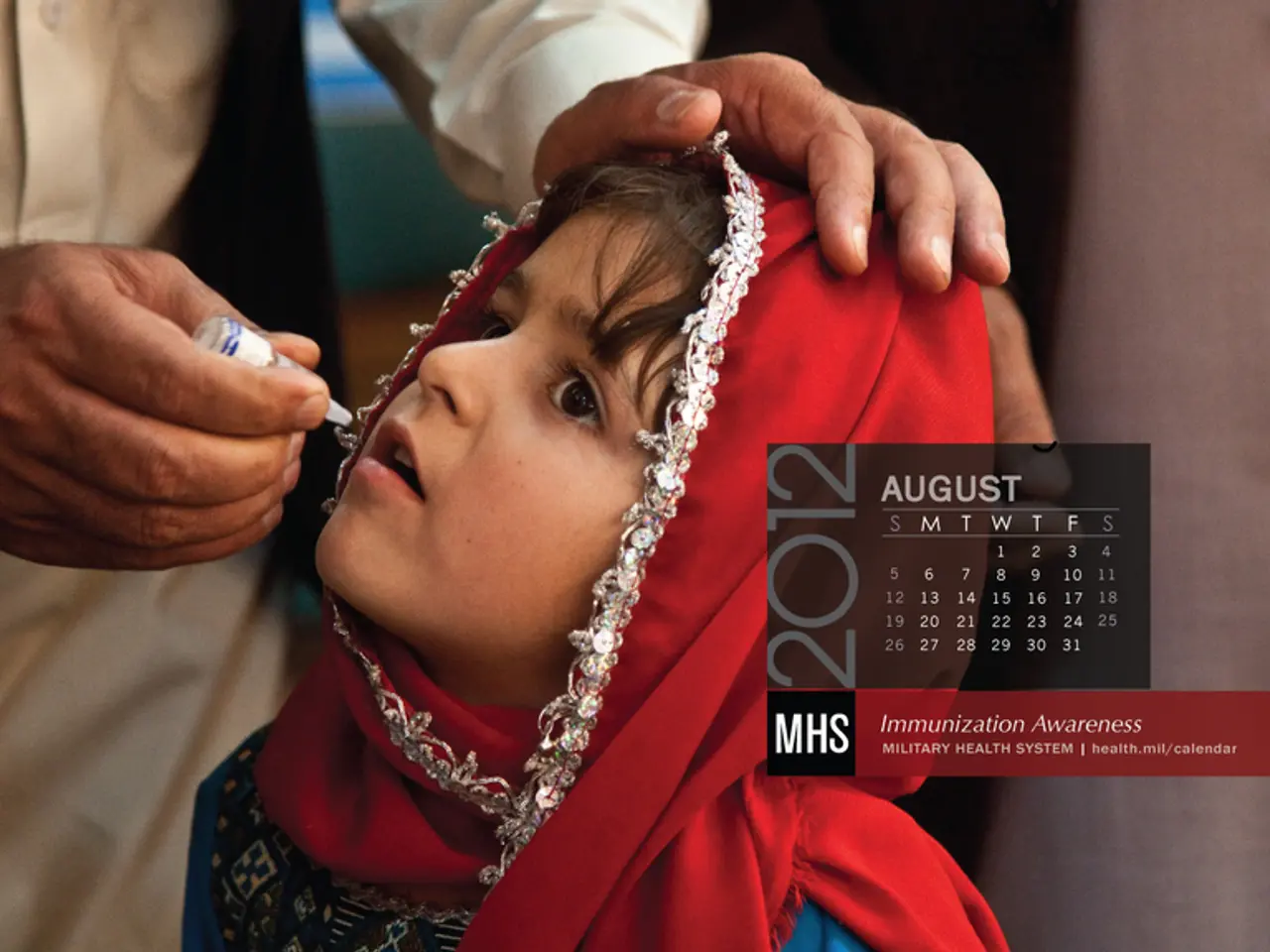Recommended modifications to child immunization schedules and COVID-19 vaccines remained unaltered by the vaccine panel
In the ongoing battle against various diseases, several significant decisions have been made recently by health authorities.
Firstly, people can receive COVID-19 vaccinations following consultation with their doctor, without needing a prescription. The vaccination is seen as a crucial step in protecting individuals, especially before traveling overseas. According to Jennifer Nuzzo, director of Brown University's Pandemic Center, a low-risk person should have the ability to get vaccinated for COVID-19 before embarking on such journeys.
Regarding hepatitis B vaccinations, the Advisory Committee on Immunization Practices (ACIP) had planned to vote on changing the first-dose recommendation from birth to 1 month old. However, the vote was tabled, and Jennifer Nuzzo voiced her support for keeping the recommendation for the first dose at birth. She called the proposal to delay the initial dose a month after birth "incredibly arbitrary."
The ACIP also recommended separate MMR (measles, mumps, and rubella) and chickenpox (varicella) shots for children during their initial doses. Additionally, a combination MMRV vaccine is available, which includes measles, mumps, rubella, and varicella (chickenpox) immunizations.
The ACIP emphasized high-risk groups for those under 65 for COVID-19 vaccines. They also voted that FDA-approved COVID-19 vaccines should be left to "individual-based decision-making."
Health Secretary Robert F. Kennedy Jr. remade the expert advisory panel earlier this year, appointing a revised group that includes seven new members. Among them is Dr. Raymond Pollak, a semi-retired transplant surgeon with an immunology background. However, concerns have been raised about the qualifications of Kennedy's remade vaccine advisory panel, with Jennifer Nuzzo questioning its legitimacy.
In a concerning turn of events, the American Academy of Pediatrics was critical of the ACIP, stating that the meeting promoted false claims and misguided information about vaccines. This criticism comes as the holiday season and winter months approach, a time when disease prevention is of paramount importance.
On a positive note, health insurance plans will cover all ACIP-recommended immunizations as of Sept. 1, including updated formulations of the COVID-19 and flu vaccines, with no cost-sharing for patients through the end of 2026.
Furthermore, getting vaccinated against COVID-19 during pregnancy not only protects the woman but also the child. This underscores the importance of vaccination for all eligible individuals.
Lastly, it's worth noting that a mother infected with hepatitis B may pass the disease to her baby. Preventative measures, such as the hepatitis B vaccine, are crucial in breaking the cycle of transmission.
These updates highlight the ongoing efforts to combat diseases and protect public health. As always, it's important to stay informed and consult with healthcare professionals for the latest guidance.
Read also:
- Abu Dhabi initiative for comprehensive genetic screening, aiming to diagnose over 800 conditions and enhance the health of future generations in the UAE.
- Elderly shingles: Recognizing symptoms, potential problems, and available treatments
- Exploring the Reasons, Purposes, and Enigmas of Hiccups: Delving into Their Origins, Roles, and Unsolved Aspects
- Various forms of cataracts include nuclear, pediatric, traumatic, and additional types







